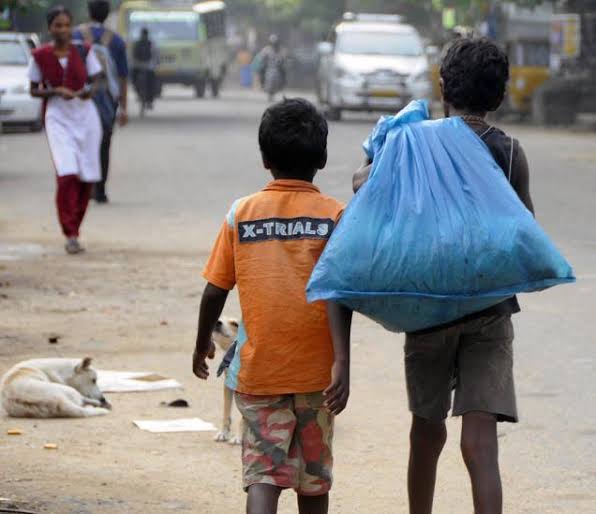National Issues
Banning Street Begging in Maiduguri: A Call for Empathy and Sustainable Solutions -By Husaini Ahmed
Banning street begging may result in unintended economic consequences. It is crucial to consider the implications for both beggars and the wider community. While a ban may alleviate short-term concerns or beautify the city streets, it fails to address the underlying issues of poverty and unemployment. Instead, implementation of effective welfare programs, vocational training, and job creation initiatives can offer viable alternatives to street begging, helping individuals transition into sustainable livelihoods.

In the bustling city of Maiduguri, the sight of individuals desperately seeking alms on the streets has become an unfortunate norm. Street begging has been a longstanding issue, with many debates centered around whether it should be banned or regulated to curb its negative societal impact. This article explores the reasons behind the desperate act of begging, its effects on the community, and suggests alternative strategies to address the issue more compassionately and sustainably.
To comprehend the issue of street begging in Maiduguri, it is essential to acknowledge the underlying causes. Poverty and unemployment are key factors that drive individuals to resort to begging. With limited access to education and employment opportunities, many find themselves trapped in this vicious cycle. Recognizing this grim reality, we must strive to tackle the root causes of poverty to break the cycle rather than merely implementing a ban.
The presence of street beggars in Maiduguri has profound social implications. On one hand, some argue that street begging promotes dependency and enables a culture of laziness, creating a parallel economy where begging becomes a more lucrative option than seeking legitimate employment. On the other hand, some see street begging as a manifestation of societal failure, casting light on the inadequate social safety nets that fail to support those in need. Banning street begging solely addresses the superficial aspect of the issue and risks alienating those already marginalized.
A particular focus should be given to the Almajiri children. These children, mostly boys, are sent by their parents to Quranic schools with the hope of religious education. However, many of these schools suffer from severe neglect, lacking proper shelter, healthcare, and nutrition, leaving the children susceptible to becoming street beggars. Efforts should be directed towards reforming the Almajiri system by ensuring quality education, skills development, and reintegrating them into mainstream society, not alienating and stigmatizing them further.
Banning street begging may result in unintended economic consequences. It is crucial to consider the implications for both beggars and the wider community. While a ban may alleviate short-term concerns or beautify the city streets, it fails to address the underlying issues of poverty and unemployment. Instead, implementation of effective welfare programs, vocational training, and job creation initiatives can offer viable alternatives to street begging, helping individuals transition into sustainable livelihoods.
A Holistic Approach
A successful resolution lies in addressing street begging through a comprehensive and compassionate approach. Collaborative efforts between the government, civil society organizations, and local communities are crucial to providing social welfare support, education, skills training, and job opportunities. Education plays a pivotal role in breaking the cycle of poverty. By investing in quality education and vocational training, the marginalized can acquire skills that enhance their employability, empowering them to contribute positively to society and break free from the dependency on begging.
The issue of street begging in Maiduguri requires thoughtful consideration and empathy. While the ban may serve as a temporary measure, a long-term solution necessitates addressing the root causes of poverty, implementing education reforms, and creating sustainable livelihood opportunities. By doing so, we can strive towards building an inclusive and prosperous society where the most vulnerable are provided with the support they deserve. Let us embrace compassion and work together towards sustainable change for the betterment of Maiduguri.
Husaini Ahmed from department of Mass Communication, Borno State University, Maiduguri.




















